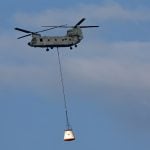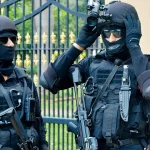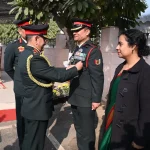The SSB (Services Selection Board) interview is a cornerstone selection process for candidates aspiring to enter the Indian Armed Forces. Regarded as one of the most difficult assessment methods, it challenges candidates on multiple fronts—intellectually, psychologically, and physically. The selection process is inherently rigorous, with a focus on testing not just academic qualifications but also essential Officer-Like Qualities (OLQs). In recent years, the acceptance rates have revealed a stark reality: only about 2-4% of candidates clear the initial stages, and the overall success rate hovers around 6-10%. This article explores the reasons behind the SSB interview’s notorious reputation, providing insights on how candidates can improve their chances of success.
Historical Context of the SSB Interview
To appreciate the current format and significance of the SSB interview, it’s crucial to understand its origins. The SSB’s assessment techniques were heavily influenced by various military selection processes worldwide, adapting best practices to suit the unique values and needs of the Indian Armed Forces. Over the years, it has evolved into a multifaceted evaluation that encompasses psychological tests, group tasks, personal interviews, and physical fitness assessments.
The SSB process was institutionalized to foster resilience and leadership qualities deemed essential for military officers. Candidates are rigorously evaluated on their ability to think independently, communicate effectively, and display leadership—a reflection of the qualities expected of military personnel in complex environments.
Why is the SSB Interview Considered Difficult?
1. Holistic Evaluation
The SSB interview is designed to assess various Officer-Like Qualities (OLQs) critical to successful military leadership. The selection board evaluates candidates on the following:
- Leadership: The ability to guide and inspire others.
- Decision-Making: Quick and effective judgment in high-pressure situations.
- Communication Skills: Clarity in expressing ideas and plans.
- Self-Confidence: Believing in one’s capabilities without falling into arrogance.
- Adaptability: Flexibility in adjusting to changing scenarios.
- Resilience: The capacity to recover from setbacks.
This comprehensive evaluation goes beyond academics, inspecting character attributes and mental acuity under varied conditions.
2. Multi-Day Testing Process
The SSB interview is not a one-day affair; it spans over five days, each day focusing on different aspects of evaluation:
- Day 1: Begins with the Screening Test, consisting of the Officer Intelligence Rating (OIR) and Picture Perception and Description Test (PPDT), which filters around 60% of candidates.
- Days 2 & 3: Conduct Group Testing, which involves tasks like group discussions, group planning, and outdoor tasks, assessed for leadership and teamwork abilities.
- Day 4: Psychological Testing through visual-scenario-based assessments like Thematic Apperception Test (TAT), Word Association Test (WAT), and Situation Reaction Test (SRT).
- Day 5: The Personal Interview and Conference where assessors further evaluate the candidate’s personality and overall suitability for an officer’s role.
This multi-faceted assessment format adds to the difficulty, as candidates must excel in several areas over a sustained period.
3. Low Selection Rates
The stark statistics surrounding the SSB interview paint a clear picture:
- Out of 100,000 aspirants, approximately 6,000 to 10,000 qualify for the SSB interview.
- Ultimately, only about 5-6% of candidates pass the entire process, which includes various stages of rigorous evaluation.
For instance, historical data from Combined Defence Services (CDS) exams only shows a few hundred candidates clearing the SSB interview cycle, indicating the steep competition and stringent selection standards involved in the process.
4. Common Reasons for Failure
Many candidates struggle with crucial aspects of the SSB interview, often leading to their downfall. The primary reasons include:
- Lack of Preparation: A staggering 70% of candidates reportedly feel unprepared for the challenges ahead, directly impacting their performance.
- Poor Communication: Inability to articulate thoughts clearly can heavily influence the assessors’ perceptions.
- Inadequate Leadership Skills: Demonstrating leadership in group tasks is pivotal. Those who hesitate or fail to take initiative are often marked down.
- Negative Mindset: Candidates who enter with doubt or anxiety perform poorly, especially during psychological tests, where a positive outlook is essential.
- Physical Fitness: Military standards for physical fitness are high. Candidates neglecting this aspect may get edged out.
Mindset and Preparation: The Keys to Success
The perceived difficulty of the SSB interview can be drastically altered through diligent preparation and the right mindset. Here are some strategies that can help candidates improve their chances of success:
1. Developing Officer-Like Qualities (OLQs)
To excel in the SSB interview, candidates should focus on cultivating essential OLQs through regular practice. Here’s how:
- Participate in Group Activities: Engage in extracurricular or community leadership roles, demonstrating initiative and teamwork.
- Decision-Making Simulations: Practice decision-making scenarios, similar to those likely encountered in the interview.
- Effective Communication Exercises: Join debating clubs or public speaking workshops to develop clarity in expression.
2. Thorough Preparation for Psychological Tests
Understanding the types of psychological tests is fundamental. Candidates should practice:
- TAT: Create stories from ambiguous images to reveal personality traits.
- WAT: Respond to words with immediate associations to showcase thought processes.
- SRT: Tackle situational dilemmas and demonstrate critical thinking.
Familiarity with these tests enhances candidates’ confidence and performance, aligning them closer to the attributes being assessed.
3. Engaging in Mock Interviews and Group Discussions
Mock interviews with peers or mentors can recreate the SSB environment. This practice helps candidates:
- Hone their ability to answer under pressure.
- Receive constructive feedback.
- Develop spontaneity in group discussions.
4. Maintaining Physical Fitness and Mental Wellbeing
Physical fitness is not merely about appearing fit; it showcases discipline, stamina, and a commitment to health:
- Regular Exercise: Incorporate strength, endurance, and flexibility training into daily routines.
- Mental Resilience Practices: Engage in mindfulness or meditation techniques to cultivate a positive mindset and mitigate anxiety.
Statistical Data and Research Insights
The statistical landscape surrounding the SSB interview underscores its challenging nature, providing a data-driven approach to understanding the hurdles candidates confront:
| Aspect | Figure/Fact |
|---|---|
| Initial stage clear rate | 2-4% |
| Overall success rate | 6-10% |
| Percentage failing screening stage | ~60% |
| Approximate candidates clearing CDS SSB interview yearly | Few hundred out of thousands |
| Percentage feeling unprepared | 70% |
| Selection rate from total aspirants | Around 5-6% |
These statistics illustrate not only the immense competition faced by candidates but also the underlying reasons why many may falter despite their qualifications.
Challenges and Solutions
Understanding the challenges intrinsic to the SSB interview process is pivotal. Here’s a focused approach to overcoming these barriers:
1. Fear and Uncertainty
Many candidates grapple with anxiety prior to the interview. Practices such as visualization and positive affirmation can quell feelings of fear.
2. Inadequate Preparation
Resources from SSBCrack and SSBCrackExams are invaluable for candidates preparing for the SSB interview. Their books, online courses, and eBooks provide the necessary knowledge base and tailored exercises to bridge gaps in understanding.
3. Communication Barriers
To counter communication challenges, candidates should engage in active listening and feedback sessions with peers to refine their skills.
Future Trends and Predictions
The SSB interview process, while steeped in tradition, is evolving. With advancements in psychological research and assessment techniques, it is likely that the evaluation methods will become increasingly nuanced. Candidates may find technology integrated into the assessment processes, from virtual reality simulations to interactive group tasks.
Moreover, the focus on mental health awareness could reshape prepare strategies—fostering environments that not only assess but also bolster the emotional wellbeing of candidates throughout the selection process.
Conclusion
The SSB interview may indeed be daunting, characterized by its low success rates and multifaceted evaluation criteria. However, candidates who approach the process with structured preparation, a positive mindset, and a commitment to developing essential officer-like qualities can enhance their chances of success. By utilizing resources like SSBCrack and embracing methods to fortify both physical and mental resilience, aspirants can transform the daunting SSB interview into an opportunity for growth—a pivotal step on their journey towards a rewarding career in the Defence Services.













